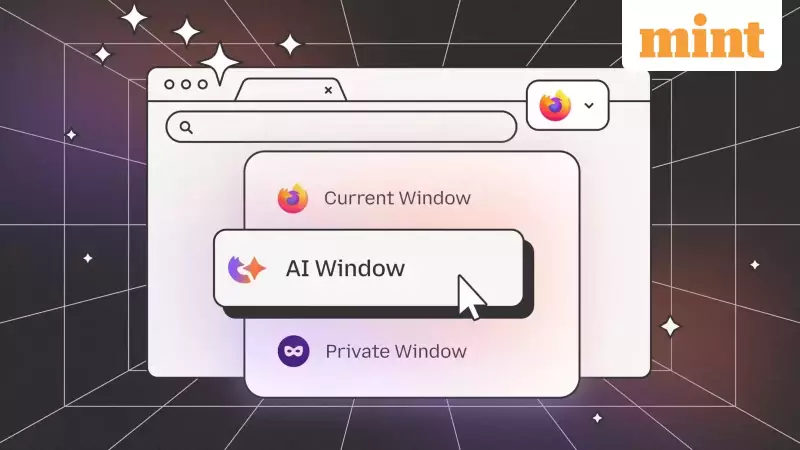
In a bold move to reclaim its position in the competitive web browser landscape, Mozilla Firefox is integrating artificial intelligence features that promise to revolutionize how users interact with the web. The company announced its new AI Window feature, offering users a choice between traditional browsing and an AI-enhanced private experience.
Firefox's Dual Approach: Traditional Meets AI
Mozilla is taking a unique approach to AI integration by giving users complete control over their browsing experience. Users can continue using Firefox as they have for years or opt for the new AI Window, which serves as a private browsing space enhanced with artificial intelligence capabilities.
"While others are building AI experiences that keep you locked in a conversational loop, we see a different path — one where AI serves as a trusted companion, enhancing your browsing experience and guiding you outward to the broader web," Mozilla stated in an official blogpost.
The company emphasizes that the AI Window feature will be completely optional. Users can choose to enable it, disable it entirely, or switch between modes as needed. This opt-in approach contrasts with competitors who often force AI features onto users.
How Firefox's AI Features Work
Mozilla's AI Window allows users to interact with an AI assistant while browsing the web, getting real-time help and personalized suggestions. The company is building this feature transparently, developing it 'in the open' and requiring interested users to join a waitlist for early access.
In a significant move toward user customization, Mozilla confirmed that users will be able to select from different AI models that best suit their needs. This flexibility ensures that users aren't locked into a single AI system and can choose the most effective assistant for their browsing habits.
This marks the third major AI announcement from Mozilla, following the introduction of an AI chatbot in the sidebar for desktop users and the 'Shake to Summarize' feature on iOS devices that generates AI-powered webpage summaries.
The Changing Browser Landscape
Google Chrome continues to dominate the browser market with an impressive 69.33% market share in desktop browsers, according to Similar Web data. Microsoft Edge follows with 15.48%, Safari with 7.5%, and Firefox currently holds 4.84%.
However, the emergence of AI-powered browsers is creating new competition. Perplexity has launched its Comet AI browser to all desktop users and plans mobile expansion, while OpenAI's ChatGPT Atlas has arrived on Mac with promises of multi-platform availability.
Firefox maintains a strategic advantage in this evolving landscape. Unlike many competitors who use Chromium codebase, Firefox operates on its own Gecko engine, making it fundamentally different from browsers like Atlas, Comet, Opera, and Samsung Internet.
This independence from Chromium could prove crucial as users seek alternatives to the Chrome ecosystem while still wanting advanced AI capabilities that enhance rather than restrict their browsing experience.






